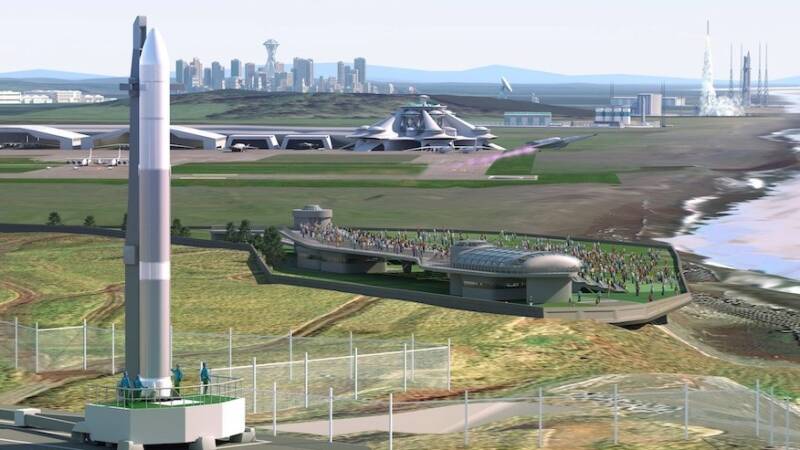Firefly Aerospace may soon expand its launch footprint to Asia, with its Alpha rockets potentially taking flight from the northern shores of Japan.

An artist’s interpretation of what the Hokkaido Spaceport may look like in the future. Graphic: Space Cotan
On Monday, Space Cotan Co., Ltd., operator of Hokkaido Spaceport (HOSPO), announced it had signed a memorandum of understanding (MoU) with the Texas-based launch company. The agreement sets the stage for a feasibility study to evaluate whether Firefly’s Alpha rockets can be launched from the Taiki Town facility on Hokkaido Island.
Billed as Japan’s first commercial spaceport, HOSPO markets itself as a hub for universities, businesses, government agencies, and international space companies. The site supports launch trajectories ranging from 42 to 98 degrees, including sun-synchronous orbits favored by Earth-observing satellites. It currently houses two launch complexes tailored for small orbital-class rockets.
“Firefly will continue to expand our responsive launch capabilities to meet the growing demand of the satellite market across the globe,” said Adam Oakes, Vice President of Launch at Firefly Aerospace. “Exploring the opportunity to launch from Japan not only strengthens our ability to serve the Asian satellite market but also adds resiliency for U.S. allies with a proven orbital launch vehicle.”
So far, all six of Firefly’s Alpha launches have lifted off from Space Launch Complex 2 at Vandenberg Space Force Base in California. The company is preparing its seventh Alpha mission for Lockheed Martin but has yet to set a date as it continues a mishap investigation into its most recent April launch.
A move to Japan would place Firefly alongside a growing number of U.S. companies establishing overseas launch pads. Rocket Lab, for example, has launched the majority of its more than 60 Electron rockets from New Zealand despite being headquartered in Long Beach, California.
Space Cotan sees Firefly’s potential presence as a boon for the region. “By taking advantage of the ideal location of Taiki Town in Hokkaido, we will support various launch service providers and contribute to the revitalization of the space industry in the region,” said Yoshinori Odagiri, Space Cotan’s President and CEO.
Japan isn’t Firefly’s only target for international expansion. The company is also working with the Swedish Space Corporation (SSC) to enable Alpha rocket launches from the Esrange Space Center in Kiruna, Sweden. In June, the United States and Sweden signed a Technology Safeguards Agreement (TSA)—the sixth such deal between the U.S. and another nation—paving the way for U.S.-built rockets to operate from Swedish soil.
“Finalization of the TSA gets us one step closer to launching Alpha from Sweden and filling a gap in the European satellite market,” Oakes said. “Together with SSC, we’re leveraging Esrange’s infrastructure to move quickly and meet the needs of NATO partners and commercial customers.”
The timeline for Firefly’s first launches from either Hokkaido or Esrange remains uncertain, but the agreements underscore the company’s growing ambition to offer global, responsive launch services for the rapidly expanding small satellite market.


Add comment
Comments